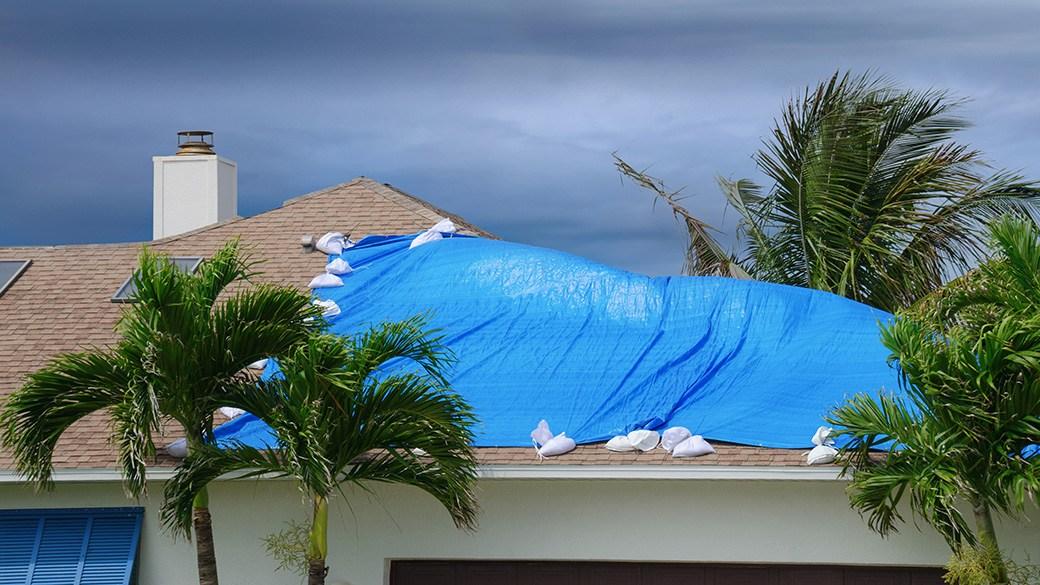
Strong and weatherproof tarps for ultimate outdoor protection
Which tarp is best?
A tarp is an easy-to-use cover for everything from the winter log pile to a fully loaded big rig. It’s no surprise you’ll find them everywhere.
So all you need to do is check the size you want and go buy one, right? Well, maybe. There is actually considerable variety. Materials and construction can have a big impact on their cost and longevity.
Our favorite, the Xpose Safety’s Super Heavy-Duty Tarp, provides a durable, all-weather solution for all kinds of tasks.
What to know before you buy a tarp
Materials
Although polyethylene (often just called poly) and canvas are the most common materials, tarps made from vinyl and PVC are also common.
Polyethylene is cheap and almost 100% waterproof and thus has become the most popular choice. However, the sun’s UV rays will rapidly destroy cheap poly tarps. They can disintegrate — quite literally fall to pieces — in just weeks. For this reason, any good poly tarp will have an anti-UV coating (make sure it’s on both sides).
Canvas (woven from natural hemp or cotton) is much tougher than polyethylene, so it’s a better choice where abrasion resistance is required. It’s also flame-retardant (though not fireproof). However, it’s seldom fully waterproof and can be prone to rot in damp environments. The flip side is that because it will absorb liquids to some degree, it doesn’t become slippery like plastics, so in some situations, it’s safer.
Vinyl is somewhat more specialized, being tougher than polyethylene but more expensive. It’s popular for hauling. PVC combines flexibility with durability and is often found in factory curtaining or construction for temporary floor coverings.
What to look for in a quality tarp
Aside from material, thickness is going to have an impact on how hard-wearing and flexible the tarp is. There are two measurement systems in general use: milliliters and ounces per square yard. Manufacturers may give either or both. Six milliliters/3 ounces would be considered light duty, while up to 24 milliliters/12 ounces would be the most heavy duty. If the tarp is woven (many poly tarps are woven, as well as canvas), then you’ll also get a weave count. Higher numbers mean greater strength, with 8 by 8 being a lightweight tarp, up to 24 by 24 on heavy-duty models.
Grommets can be plastic, aluminum or brass. All are resistant to rust, but metal ones will last longer. Spacing can be anywhere from 36 to 18 inches apart. Typically, they’ll be closer on heavy-duty tarps because you usually want more tie-down points.
Double or triple rows of stitching reinforce the edges of the tarp. Nylon rope is sewn into the edge on the highest-quality versions to add additional strength.
Regarding sizing, some manufacturers give the size as that of the cut material before the edge is folded over and stitched. This generally results in the actual tarp dimensions being a half inch or more smaller than stated in the description. If you need precise sizing, it’s something to look out for.
How much you can expect to spend on a tarp
You can probably find cheap tarps for just a few bucks, but they tear easily and have no UV protection. A good-quality 8-by-10-foot tarp will cost around $15; at the other end of the scale, a tough, heavy-duty 30-by-40-foot tarp will cost you several hundred. That’s still very reasonable, considering the size and level of protection provided.
Tarps FAQ
Are milliliters for tarp thickness the same as millimeters?
A. Sound similar, don’t they? But no, they’re not the same. A mil is 1/1000th of an inch, and a millimeter is 1/100th of a meter. If you want a conversion, a millimeter is 0.039 inch — or 39 milliliters.
How do you know if a tarp is properly waterproof?
A. It’s not easy. There’s no common standard, so you have to take the maker’s word for it. It’s difficult to make canvas completely waterproof, so poly is better. Be careful with “water-resistant,” which probably just means showerproof.
What’s the best tarp to buy?
Top tarp
Xpose Safety’s Super Heavy-Duty Tarp
What you need to know: This hard-wearing tarp is available in a wide range of sizes, providing something for every task.
What you’ll love: It’s 16 milliliters thick and has a 16 by 16 weave count. It’s strong, waterproof and UV-resistant. Grommets are 18 inches apart, and seams are reinforced for greater security.
What you should consider: Seams have been known to fray occasionally.
Top tarp for the money
Harpster Tarps’ High-Visibility Tarp
What you need to know: This light-duty tarp is bright red if you need what you’re covering to stand out.
What you’ll love: This cheap and cheerful cover is suitable for indoors and outdoors. The material is 3.3 ounces (approximately 7 milliliters thick). It is waterproof, rot-resistant and has an anti-UV coating on both sides.
What you should consider: It’s just a thin, lightweight cover.
Worth checking out
F & J Outdoors’ Canvas Truck Tarp
What you need to know: This well-made, traditional, heavy-duty canvas is for vehicle, boat and yard use.
What you’ll love: The thick, 10-ounce fabric equivalent to 23 milliliters has triple-stitched hems. Grommet spacing allows for frequent tie-down points. Accurately sized, it is UV- and water-resistant.
What you should consider: It isn’t fully waterproof, and the color can fade quickly.
Prices listed reflect time and date of publication and are subject to change.
Check out our Daily Deals for the best products at the best prices and sign up here to receive the BestReviews weekly newsletter full of shopping inspo and sales.
BestReviews spends thousands of hours researching, analyzing and testing products to recommend the best picks for most consumers. BestReviews and its newspaper partners may earn a commission if you purchase a product through one of our links.


